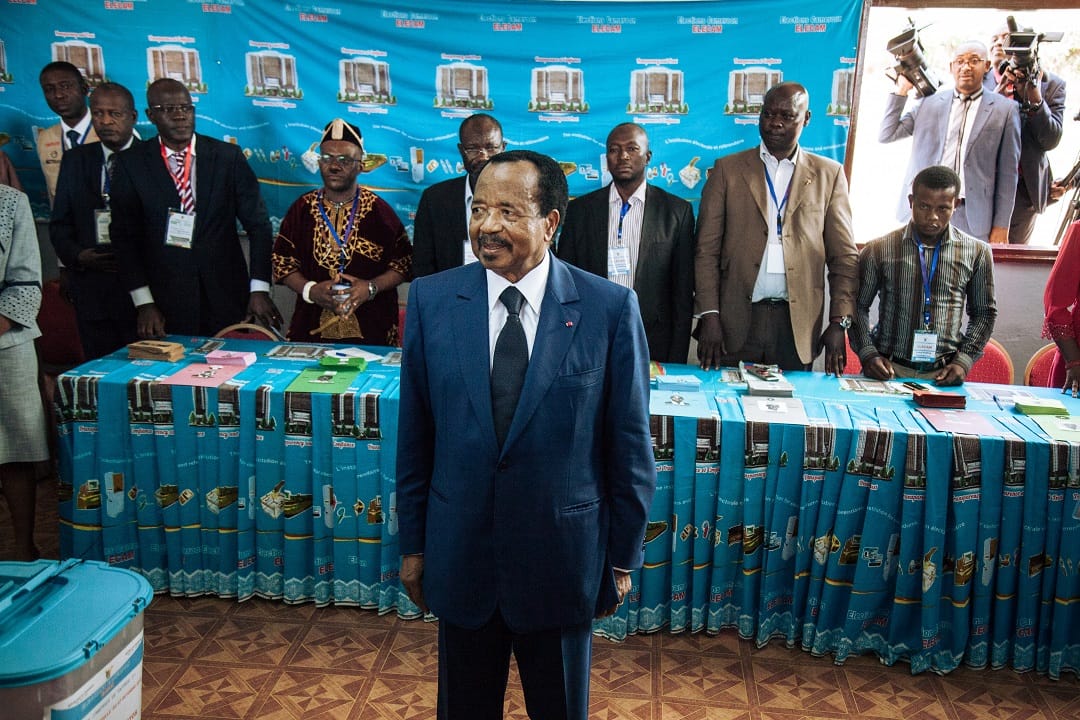
(FILES) In this file photo taken on October 07, 2018 Cameroon's incumbent President Paul Biya (C) looks on as he votes at the polling station in Bastos neighbourhood in the capital Yaounde during Cameroon's presidential election. - Cameroon President Paul Biya has been re-elected to a seventh straight term with 71.3 percent of the vote in this month's election, the Constitutional Council said on October 22, 2018. (Photo by ALEXIS HUGUET / AFP)
Cameroon is approaching a pivotal legal deadline to convene its electorate for the upcoming presidential election, raising questions about political intent and adherence to the country’s electoral code.
According to legal expert Me Désiré Sikati, the Electoral Code stipulates in Article 86 that the President of the Republic must issue a decree calling the electorate to the polls at least 90 days before the election.
Given this, and the constitutional timeline, the deadline to convene voters is July 13, 2025, if the election is held on Sunday, October 12, as tradition dictates.
However, a slight delay remains possible. “If the government decides to schedule the presidential election on a working day, i.e. between Monday and Friday, then the electoral body must be convened no later than July 19, 2025,” explained Me Sikati.
Cameroon’s Electoral Code is precise. Article 6, paragraph 2 states: “The election takes place at least 20 days and at most 50 days before the expiration of the powers of the President of the Republic in office.”
President Paul Biya was sworn in for his current term on November 6, 2018, meaning his mandate expires on November 6, 2025. Therefore, the election must occur by Friday, October 17, at the latest.
Yet since Cameroon traditionally holds elections on Sundays, the logical date becomes October 12, which would fix the last permissible date to call the electorate at July 13.
Failure to meet these deadlines would constitute a serious breach of legal procedure, say critics.
“After the dates of July 13 and 19, 2025, if the electorate is not convened, it would amount to saying that POPOL and the RDPC are afraid of the election,” Me Sikati argued, accusing the ruling party of previously manipulating electoral timelines to obstruct opposition leader Maurice Kamto.
As the clock ticks toward the legal deadline, all eyes are on the presidency for a decisive move that could shape the nation’s political future.



